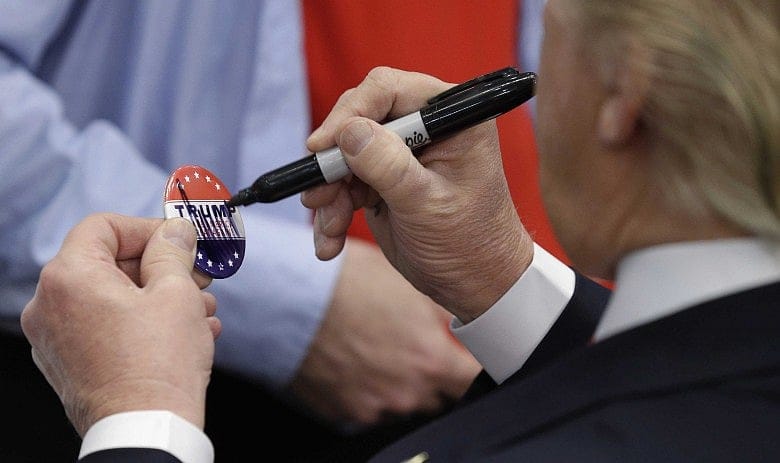Trump path to White House seen paved by white voters

DENVER (AP) — Should he win the Republican nomination, Donald Trump's most plausible path to victory in the general election would be a GOP map unlike any in years, analysts say.
The New York billionaire would be relying on lower-income, largely white voters from both parties in states that have long been Democratic bastions in presidential contests, from Maine to Pennsylvania and Michigan.

